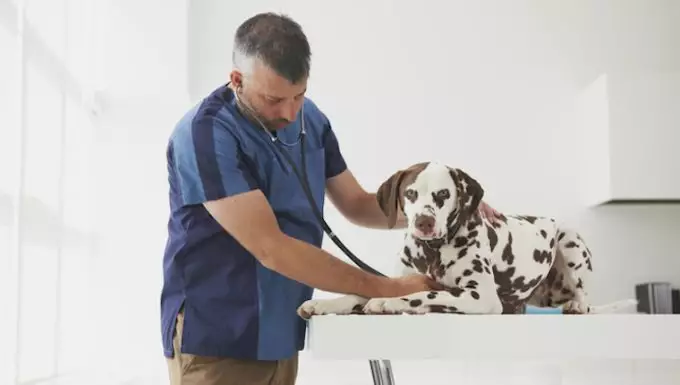When one thinks about the major health threats facing our beloved canine companions, lung cancer isnot the first concern that springs to mind. Yet, while it’s relatively uncommon, lung cancer in dogs, specifically squamous cell carcinoma, represents a grave challenge, especially among older and larger breeds like Labrador Retrievers and German Shepherds. Understanding this condition is paramount not only for responsible pet ownership but also for potentially saving your dog’s life.
Recognizing the Warning Signs
Diagnosing lung cancer early is crucial for effective treatment, and recognizing the symptoms can make a significant difference. Pet owners should be particularly vigilant for signs such as persistent coughing, unexpected weight loss, or difficulty breathing. Other red flags may include decreased appetite, sudden fatigue, sneezing, and even hematuria—blood in urine—or feces. It’s essential to act promptly if you notice these symptoms; the longer you wait, the more entrenched the disease can become, reducing treatment efficacy.
Understanding the Causes and At-Risk Groups
The causative factors behind lung cancer in dogs can often be traced to environmental influences. Exposure to secondhand smoke is a significant risk factor, underscoring the importance of a smoke-free environment for pets. Additionally, toxins and chemicals in their surroundings can contribute to the onset of this disease. It’s also essential to note the demographic predisposition; older dogs are statistically more susceptible, with larger breeds experiencing higher incidence rates. This demographic detail should encourage dog owners to remain vigilant, particularly if they own breeds that fall into these high-risk categories.
Diagnostic Procedures: What to Expect
Once symptoms are observed, a visit to the veterinarian is non-negotiable. Expect a comprehensive evaluation, including a thorough inquiry into the dog’s medical history and lifestyle. The veterinarian will likely conduct physical examinations, blood tests, and possibly a urinalysis. Advanced imaging techniques, such as endoscopy, are valuable to visualize potential tumors, and a biopsy remains the gold standard for confirmation of the diagnosis. Being prepared for this process can alleviate some anxiety associated with your dog’s health assessment.
Available Treatment Options and Home Care
Treatment for canine lung cancer typically centers around surgical intervention to excise malignant tissue. In many cases, chemotherapy is also utilized to eradicate remaining cancerous cells and reduce recurrence risk. Post-surgery, it’s crucial to foster a calm environment for recovery. Limitations on exercise and regular follow-up visits with the veterinarian will play key roles in your dog’s rehabilitation. Pet owners can have a pivotal influence on their pet’s recovery by ensuring a stress-free recovery space and adhering to the veterinarian’s recommended activity guidelines.
The Role of Community and Support
The emotional toll of watching a beloved pet battle cancer cannot be overstated. If you have navigated the challenges posed by canine lung cancer, consider sharing your journey with peers—your experience could be invaluable to someone facing a similar situation. Engaging with online communities and local support groups allows pet owners to exchange advice, gather resources, and find comfort in shared experiences. Advocating for awareness about this disease can lift some of the burden off those currently facing this daunting diagnosis, fostering a sense of solidarity in the dog-loving community.
Each dog’s fight against lung cancer is unique, but together we can create a community that emphasizes the importance of early detection, proper treatment, and emotional support for those affected.

